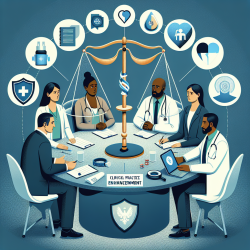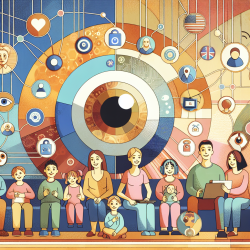Introduction
The intersection of mental health, legal frameworks, and ethical considerations forms a complex landscape that clinicians must navigate to ensure the safety and well-being of individuals in crisis. The recent research article, "Balancing the Roles of Clinicians and Police in Separating Firearms from People in a Dangerous Mental Health Crisis: Legal Rules, Policy Tools, and Ethical Considerations," provides critical insights into this dynamic. By understanding and implementing the findings of this research, practitioners can enhance their skills and improve outcomes for individuals at risk of suicide.
Understanding the Role of ERPOs
Extreme Risk Protection Orders (ERPOs) are a legal tool designed to temporarily remove firearms from individuals deemed to pose a significant risk to themselves or others. The research highlights the potential of ERPOs to prevent suicides through early intervention, especially when clinicians are actively involved in assessing suicide risk and initiating these orders. This proactive approach can prevent situations like the Caniglia case, where the absence of timely intervention led to legal and ethical challenges.
Legal and Ethical Considerations
Clinicians must balance legal obligations with ethical considerations when addressing mental health crises. The Fourth Amendment protects individuals from unreasonable searches and seizures, yet exigent circumstances may necessitate immediate action to prevent harm. The research underscores the importance of using ERPOs within a framework that respects constitutional rights while prioritizing safety.
Ethically, clinicians must weigh the principles of autonomy, beneficence, nonmaleficence, and justice. The hypothetical case of Mr. Doe illustrates the delicate balance between respecting a patient's autonomy and taking necessary actions to prevent harm. Clinicians must engage in open, therapeutic dialogues with patients to navigate these ethical dilemmas effectively.
Enhancing Clinical Practice
To enhance clinical practice, practitioners are encouraged to:
- Familiarize themselves with ERPO laws and their application in clinical settings.
- Engage in ongoing education and training on suicide risk assessment and legal tools available for crisis intervention.
- Collaborate with law enforcement and legal professionals to ensure coordinated and effective responses to mental health crises.
- Incorporate ethical considerations into decision-making processes, ensuring that interventions are both legally sound and ethically justified.
Conclusion
The integration of legal and ethical considerations into clinical practice is essential for effective mental health crisis intervention. By leveraging tools like ERPOs and engaging in continuous education, clinicians can play a pivotal role in preventing suicide and promoting safety. The research article provides a valuable foundation for practitioners seeking to enhance their skills and improve outcomes for individuals in crisis.
To read the original research paper, please follow this link: Balancing the Roles of Clinicians and Police in Separating Firearms from People in a Dangerous Mental Health Crisis: Legal Rules, Policy Tools, and Ethical Considerations.










